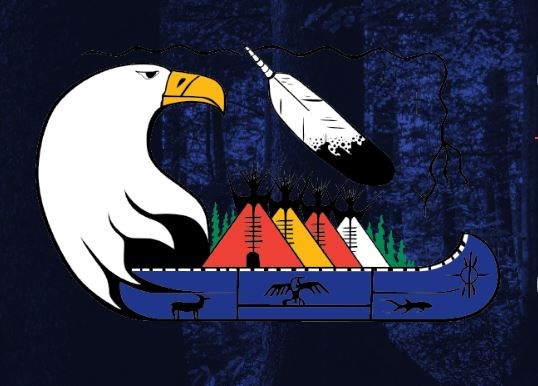THUNDER BAY — A court hearing scheduled for this Friday in Toronto will determine whether Ginoogaming First Nation is granted an interlocutory injunction to prevent mineral exploration in part of its traditional territory pending the outcome of a lawsuit against Ontario and two mining companies.
In September 2021, the First Nation received an extension of an interim injunction preventing exploration firms connected to Geraldton prospector Mike Malouf from exercising their three-year Ontario government permits to explore in an area that Ginoogaming has declared to be sacred and culturally significant.
In the 2021 decision, a Superior Court judge ordered Ontario to engage in "meaningful consultation" with Ginoogaming.
The province had maintained that its hands were tied because the only outcome satisfactory to the First Nation would be a revocation of Malouf's exploration permit.
The judge observed in her ruling that the government's argument, in other words, was that "Ginoogaming will not accept any accommodation."
But she questioned the adequacy of consultation prior to issuing the permit, which included a notice provided by letter and a follow-up email, saying "this does not seem to me to be effective communication."
In response to an inquiry from TBnewswatch, the Ministry of Mines stated last week that "Ontario pursued further consultation with Ginoogaming ... the ministry continues to work on understanding and responding to the community's concerns. The ministry is committed to meeting its duty to consult."
According to Malouf, those efforts have been fruitless, and the province and the First Nation are at a total impasse.
In an interview, the First Nation's lawyer, Kate Kempton, said that on the judge's instructions "an attempt was made" to discuss an accommodation for Ginoogaming's concerns, but its position is that "this is sacred land, and you can't have any exploration there."
Therefore, she said, the community is now applying for an interlocutory injunction "which lasts for the length of time that the underlying lawsuit is in play and until that's decided."
Kempton said the lawsuit seeks permanent protection for the Wiisinin Zaahgi'gan sacred area and compensation for past harms to it.
"The main defendant, really, is the government of Ontario because the government is the regulator, so it will have the vast majority of the legal liability here."
She said that although $80 million is the figure attached to the claim, actual damages have yet to be determined.
Since his exploration permit expired last year, Malouf argues that an injunction is no longer necessary, and that there's no need for Ginoogaming to continue its lawsuit against his companies.
But Kempton said it's important to negate the need to return to court again in the event that new permits were applied for and granted.
She said Ginoogaming would have preferred that the province buy out Malouf and that Wiisinin Zaahgi'gan be turned into an Indigenous Protected and Conserved Area, for which there are precedents elsewhere in Canada.
"It's not a title claim. It doesn't change the underlying title. But it changes its use in nature, and who manages it, i.e. First Nations under their protocols. But in order to do that you have to have mining claims removed."
Kempton also noted the precedent of Ontario buying out the interests of two other mining companies which had claims in the traditional territory of Kitchenuhmaykoosib Inninuwug First Nation.
Malouf, a lifetime prospector who's now 76 years old, has previously complained that the current dispute with Ginoogaming shows that exploration firms can spend millions of dollars looking for minerals until First Nations "out of the blue" declare "we have first dibs on it, you go look somewhere else."
But in a recent interview, he said "the problem is not the First Nations. The problem is the government. The government has been ordered by the courts to reconcile with First Nations for harms done many years ago. Rather than making restitution, they're trying to transfer the obligation to fulfill their own responsibility onto the back of the mining industry. Unfortunately, it's going to be really detrimental to everyone in the North."
"When you think of how many people benefit from mining and how many jobs are created, you're affecting a lot of people ... Hopefully we're going to get somewhere in the end where somebody points out that 'it can't work this way.' "
He also recently criticized Ontario's decision to halt mineral exploration on 940 square kilometres of land near Long Lake #58 First Nation, where an Aboriginal title claim remains under negotiation.
